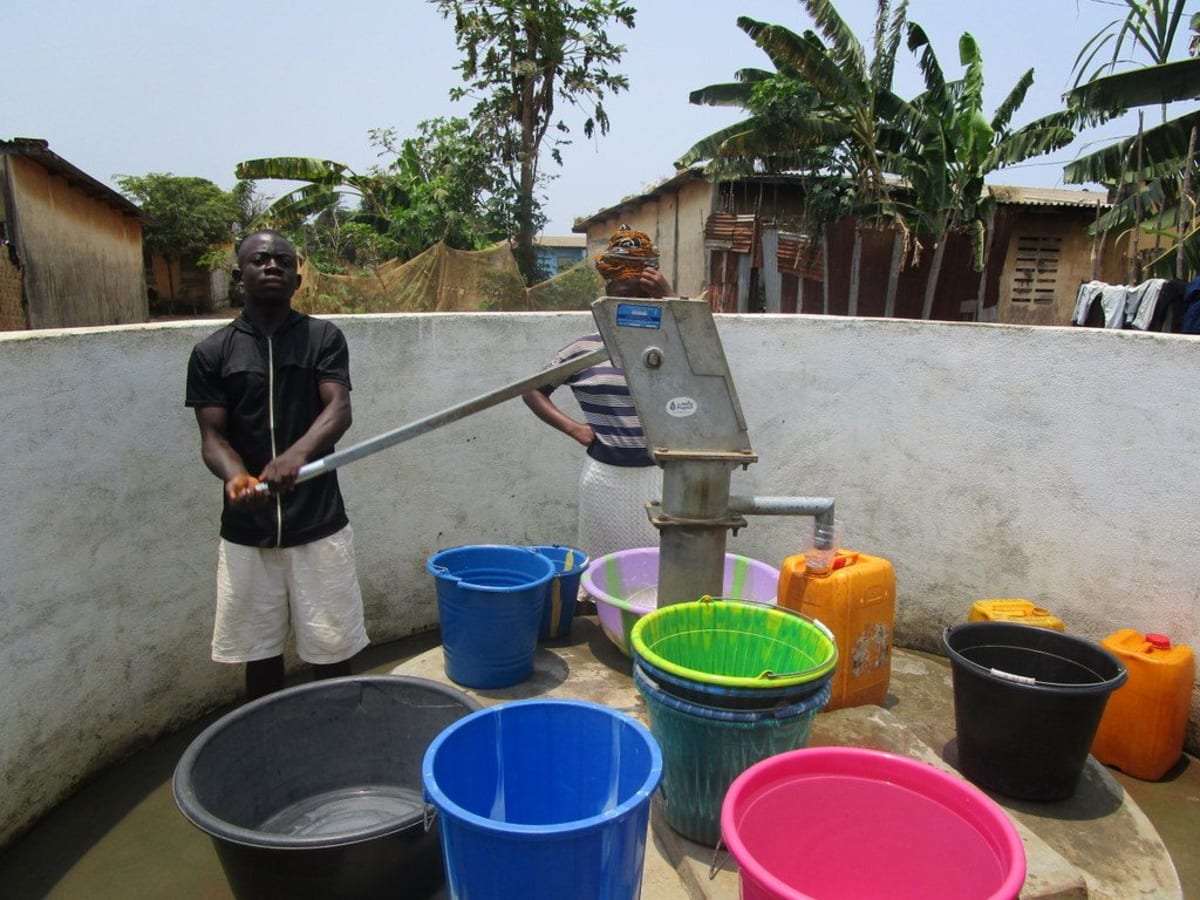Welcome to the Community
Everyone living in this area is part of the police force in some way or another. This fact sets this area of Tintafor apart from the rest. The day starts whenever someone is called in for duty.
The police force for Tintafor is made up of people from all different tribes and backgrounds, but all have come together to keep their community safe. It's not only the men of the family on the force, but often the wives have earned titles for themselves as well. These couples send their children to schools within walking distance of the barracks.
Water Situation
There are 692 people living in and around the barracks who have relied on two hand-dug wells since their installation back in 2011. (Editor's Note: While this many people may have access on any given day, realistically a single water source can only support a population of 350-500 people. To learn more, click here.)
Unfortunately, the wells have been less than reliable for the hundreds using them. During the dry season, which can last anywhere from two to six months, one of these wells completely dries up. The entire community then moves to fetch water from the other well. Waiting in line for one of the two wells would be stressful before, but it becomes unimaginable with just one functioning well during the dry season. Whether one or two wells, there are large crowds waiting at all times of the day.
Since the wait is so long, users normally bring the largest container they can carry. Once your chance arrives and goes, there's someone else to immediately take your place.
And as the second well is overused during the dry season, the water levels drop and it takes much longer to fill just one container. Repairs required to keep this second well up and running are astronomical. There have been 10 just since 2015! With this water shortage, there's not enough to take care of animals. There's not enough water to clean, and the odor gets unbearable.
Sanitation Situation
Things would have looked good here 20 years ago when the police barracks first opened. All of the households were equipped with flush toilets, but now there's no indoor plumbing. These bathrooms are filthy, and become even filthier during the dry season.
Less than half of households have helpful tools like dish racks and clotheslines to dry belongings up off the ground. There are no hand-washing stations anywhere to be found.
The kitchen is where people house their animals. Sheep droppings litter the ground, and garbage is piled under a tree.
Attitudes here about hygiene and sanitation are terrible. There is wastewater that has pooled around one of the hand-dug wells, and it is never cleared. It is the perfect breeding ground for mosquitoes and other biting things. Children walk around with bare feet, increasing their changes of contracting other illnesses. The police motto is "a force for good," but they're definitely missing the chance to do that in their own barracks.
"Chickens are kept in kitchens, garbage pilled so high it looks like a hill. We are living in filth... These barracks need a total renovation. The toilets are almost filled. I myself have been sick with cholera, typhoid and not to mention malaria. We have been quarantined during the Ebola, quite a few of the quarters were restricted. We lost some of my colleagues. We need help, I might have to move out and rent some place else," said Mr. Abieyoseh.
Looking at the condition of their surroundings, it's doubtful we'll get any help at all with this project. The entire community relies on the government so much that they are not willing to make or do anything for themselves. We approached one police officer and asked him, "Why don't you guys repair your private quarters and your surroundings?" His reply was that you never know when you will be transferred.
Plans: Hygiene and Sanitation Training
These training sessions will be stretched from the usual three hours a day to four hours. We may even have more than three days of these sessions!
The beneficiaries will be required to clean up their barracks, both inside and out. They will be taught how to properly house their animals and dispose of their garbage. They will be taught how to construct a hand-washing station and how to use it.
Training will also result in the formation of a water user committee that will take responsibility for their new well. The members will manage and maintain the pump to the best of their ability, and will call our office if they need a mechanic to make a repair.
Plans: Well Rehabilitation
The well marked for this overhaul needs major work to supply adequate, clean water to the community once again. The pump will be removed, and a man will be lowered inside with a hand auger. This hand auger will allow the team to drill several meters deeper to hit a new water table, which will ensure the well supplies water throughout the drier seasons. As the team drills, casing will be installed, transforming this hand-dug well into a pseudo-borehole. PVC piping will connect this lower system directly to the pump, a construction that we know will also improve the quality of water.
Once this plan is implemented, everyone within the community will have reliable access to safe water, even through the dry seasons.

 Protected Dug Well
Protected Dug Well





















